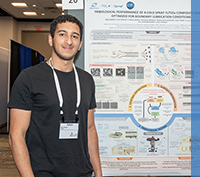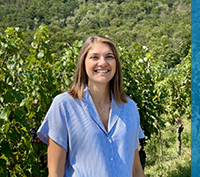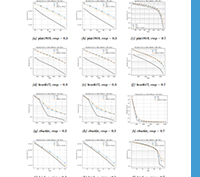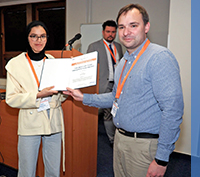PhD defence of Ramy Nemer
18 November 2021
Ramy Nemer defends his PhD on Nov. 23rd, 21
An adaptive immersed mesh method for fluid-structure interaction
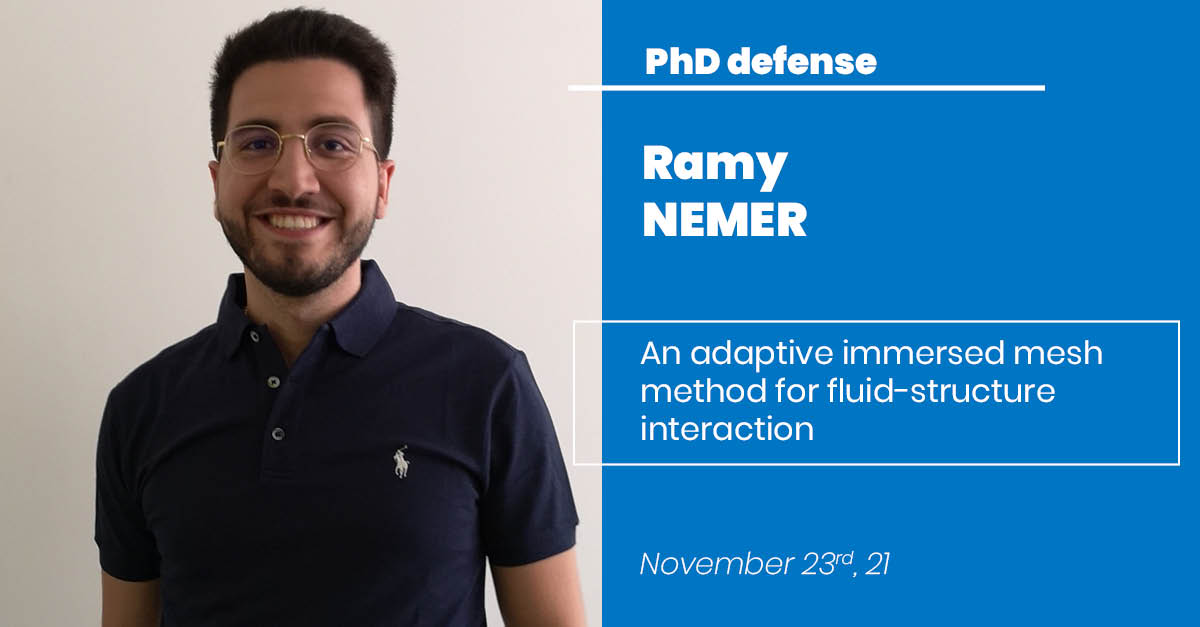
Ramy Nemer conducted his PhD work in CFL team, under the supervision of Elie Hachem and Thierry Coupez in the framework of a project with Aqualung group. Ramy Nemer will defend his PhD in Computational Mathematics, High Performance Computing and Data, on November 23rd, 21 in front of the following jury:
– Prof. Thomas J.R. Hughes, The University of Texas at Austin, President of the jury
– Prof. Masud Arif, University of Illinois at Urbana-Champaign, reviewer
– Prof. Ramon Codina, Universitat Politècnica de Catalunya, reviewer
– Prof. Stefanie Elgeti, Vienna University of Technology
– Prof. Trund Kvamsdal, NTNU
– Dr Aurélien Larcher, Mines Paris -PSL
– Mr. Nicolas Peyron, Aqualung group, guest
– Mme Stéphanie Godier, Recherche et Avenir, guest
Abstract:
The need to simulate flexible, relatively thin structure is of growing interest with applications ranging from thin cylindrical sensors to membrane-like structures. These structures usually interact with their surroundings to accumulate data, or for a specific purpose. The inevitable interaction between the surrounding fluid and the solid is solved using a novel Fluid–Structure Interaction (FSI) coupling scheme. This thesis proposes a novel way to model the interaction between the fluid and solid. It consists of a hybrid method that combines both the traditional monolithic and partitioned approaches for Fluid–Structure Interaction (FSI). The solid mesh is immersed in a fluid-solid mesh at each time step, whilst having its own independent Lagrangian hyperelastic solver. The hyperelastic solver consists of a mixed formulation in both displacement and pressure, where the momentum equation of the continuum is complemented with a pressure equation that handles incompressibility inherently. It is obtained through the deviatoric and volumetric split of the stress that enables us to solve the problem in the incompressible limit. A linearization of the deviatoric part of the stress is implemented as well. The Eulerian mesh contains both the fluid and solid, and accommodates additional physical phenomena. Anisotropic mesh adaptation and the Level-Set methods are used for the interface coupling between the solid and fluid to better capture the interaction between them. All of the above components form the Adaptive Immersed Mesh Method (AIMM). The Variational Multi-Scale (VMS) method is used for both solvers to damp out any spurious oscillations that may arise for piece wise linear tetrahedral elements. The framework is constructed in 3D with parallel computing in mind. Extensive 2D and 3D test cases are presented that validate the hyperelastic Lagrangian solver, and the FSI AIMM framework. An application of the industrial partners was lastly tackled.
Keywords: Fluid–Structure Interaction, Finite elements, Variational Multi-Scale Methods, Anisotropic Mesh Adaptation, Hybrid method, Hyperelastic


